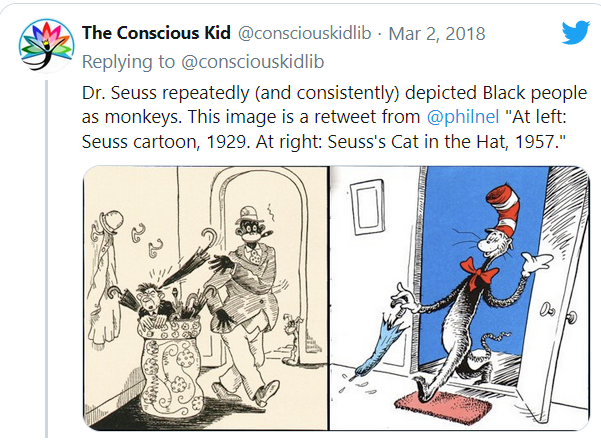There are now calls to erase Theodor Geisel, aka Dr. Seuss, from the lexicon because in the 1920s and 1930s, he was a racist by today’s standards. Furthermore, a supposed study, which I cannot find anywhere, claims that his children’s books are also racist.
Except for cartoony stylized “coolies,” the only strong example of this latter accusation seems to be that The Cat in the Hat is somehow in blackface even though his face is white. Oh, and he’s a cat!
This all brings me around to my complaint about the entire structure of these engineered accusations. Now they go back in time and tell us that we must all condemn Abe Lincoln and George Washington as racists.
Most of the cultural changes in America and the world since the 1960s stems from a 1966 book that took the culture by storm: Situation Ethics: The New Morality, by theologian Joseph F. Fletcher.
That decade began with the FDA approval of the birth control pill (1960), which started the “sexual revolution.” The decade ended with topless bars, sex clubs, swingers, LSD, weed, and the Vietnam war protests.
The sexual revolution needed some rationales for its otherwise sinful excesses. Enter “situation ethics.” The entire idea of “situation ethics” became the rationale for all societal changes. And it worked. Here is a backgrounder from Britannica:
“Situation ethics, also called situational ethics, in ethics and theology, the position that moraldecision making is contextual or dependent on a set of circumstances. Situation ethics holds that moral judgments must be made within the context of the entirety of a situation and that all normative features of a situation must be viewed as a whole…Situation ethics was developed by American Anglican theologian Joseph F. Fletcher, whose book Situation Ethics: The New Morality (1966) arose from his objections to both moral absolutism (the view that there are fixed universal moral principles that have binding authority in all circumstances) and moral relativism (the view that there are no fixed moral principles at all).”
The liberal and academic thinkers in the United States and even worldwide adopted these ideas wholesale. It carried on full force into and through the 1970s and until this day, almost.
The sexual revolution side of it (the core) all ended with the emergence of AIDS in the 1980s. This disease destroyed the majority of sex clubs for heterosexual “swingers” and marked the end of the bath house culture for gay men.
The ethos of “situation ethics” continued, though. It accounts for most social change including the legalization of marijuana, legalized abortion, gay marriage, BLM, police reform, etc.
It may also account for other sketchy impacts, such as a rise in atheism, attacks on the nuclear family, and other unsettled business.
You cannot ignore the cultural shifts. It was a better solution than an intractable moral absolutism in an era of needed change.
It also stopped any further incursion of moral relativism. Moral relativism rejects all rules and adopts the banal “if it makes you feel good, then do it” standard.
In recent years, we no longer see any sort of “situational ethics” approach to societal norms at all. Instead, we get a complete reset to moral absolutism using the currently acceptable absolutes set in stone by the nebulous “politically correct” class.
Worse, we now use today’s moral absolutes to reflect on the past in a judgmental manner. We’ve shut the door on “situation ethics” like closing the hatch on a submerging submarine. How did moral absolutism return and why? Have we decided that today’s exact morals are now universal and absolute throughout the continuum of time past, present and future?
This is a function of control—thought control—that cannot exist outside of a moral absolutist milieu. Current political morals orbit around race and ethnicity.
The idea that any variation away from a rigid and new worldview and that anything about race is itself racist and must be punished. These standards of behavior are so absolute that they are extended and reverse engineered into the past.
Washington, Jefferson. Lincoln: all their past thinking is now rejected out of hand because of this tarnish of racism. The old thesis of “situation ethics” accounts for actions of the past and defines none of it as a transgression, but this is out the window.
What about Shakespeare, Julius Cesar, Christ, Buddha? Don’t worry, they’ll get to them soon enough.
(Why all this is not rejected and condemned by modern academia is a genuine mystery.)
The irony, of course, is that “situation ethics” was the tool used to get to this point and it made things work. But now it looks like the progress, the positive direction, the good ideas, the fairness, it all ends. It was musical chairs all along and the music stopped.
What we’re looking at now is not going to work.
Biological males competing with women in sports because they say they are women is not workable. Petty crime allowed to flourish in places like San Francisco with a District Attorney refusing to prosecute or punish any of it is not workable. Homeless exemptions from most laws and regulations is not workable. Abolishing the police is not workable. Ending the nuclear family is not workable. None of it is workable. In fact, it’s idiotic.
It’s time to restart musical chairs to get off this kick of using the new absolute moral standards of today to judge the past. It’s not workable, either. And leave Dr. Seuss alone. — jcd March 9, 2021
Related posts:
Views: 0
 RSS Feed
RSS Feed

















 March 9th, 2021
March 9th, 2021  Awake Goy
Awake Goy 

 Posted in
Posted in  Tags:
Tags: 
















